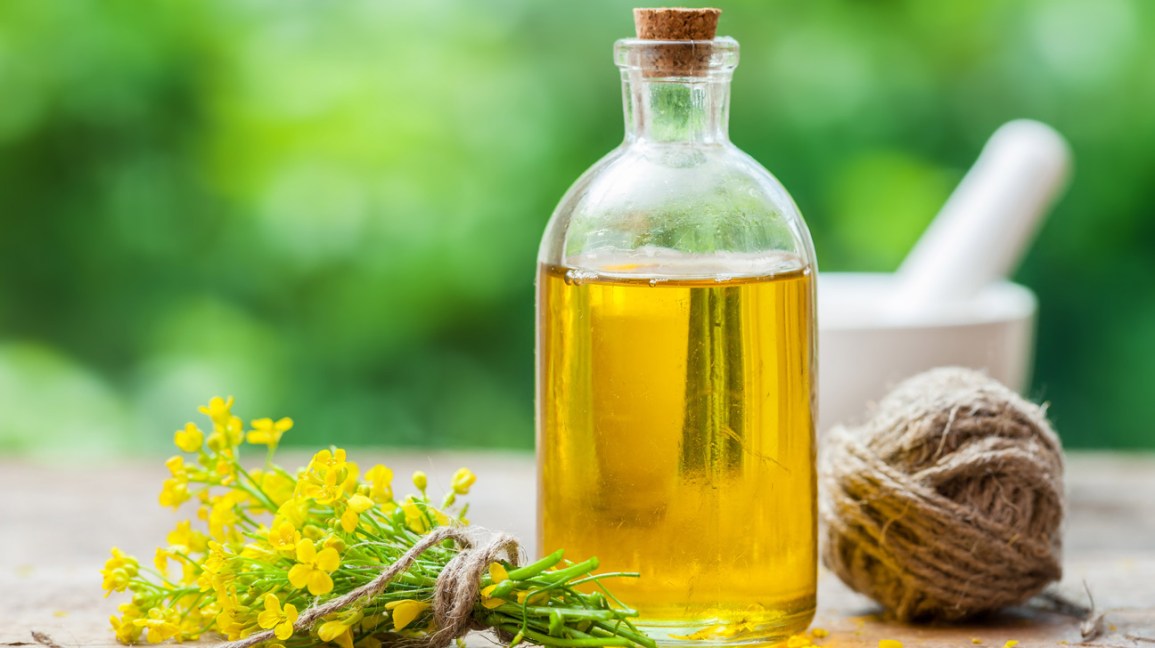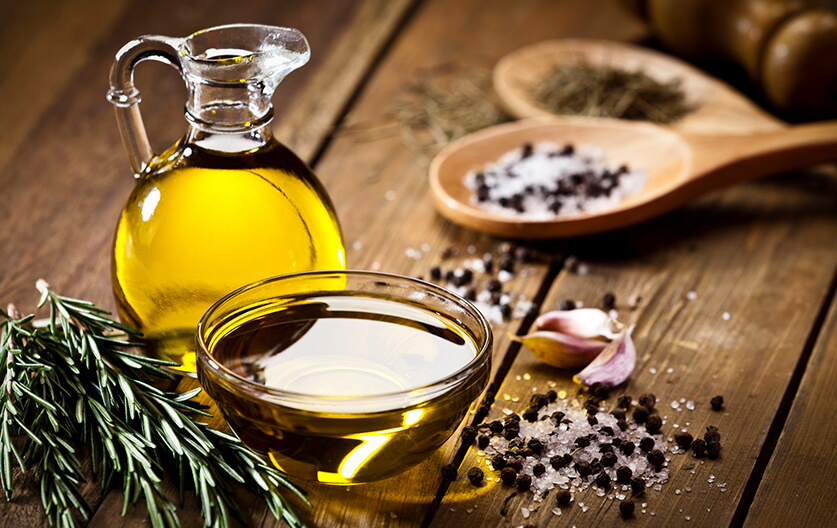The oils you use in the kitchen might seem like a small part of your diet, but they can have a surprising impact on your health. While oils are a form of fat—and fat is often viewed with suspicion—not all fats are created equal. In fact, your body actually needs some fat to function properly.
Fats provide energy, help the body absorb certain vitamins, regulate hormones, and support the growth of cells. Some types even help protect your heart. The key is choosing the right kinds of fat—and by extension, the right cooking oils. The goal isn’t to avoid fat entirely, but to be smart about which ones end up in your meals.
Let’s break down which oils support your health—and which are better left out of your diet.
Oils That Offer Health Benefits
Olive Oil
Widely regarded as one of the healthiest fats, olive oil is a staple of the Mediterranean diet. It’s made by pressing ripe olives, and it contains heart-protective monounsaturated fats. Extra virgin olive oil also has powerful antioxidants that support overall health.
Olive oil works well as a salad dressing, for drizzling on pasta, or for dipping bread. While it can be used in light sautéing or baking, it’s not ideal for high-heat cooking. Its low smoke point means it breaks down more easily when heated too much, which can compromise both flavor and health benefits.
Canola Oil
Canola oil is another heart-healthy option that’s low in saturated fat. The U.S. Food and Drug Administration has even acknowledged its potential role in reducing heart disease risk when used instead of saturated fats.
Unlike olive oil, canola oil has a higher smoke point, making it better suited for roasting, stir-frying, or even shallow frying. Its neutral flavor, though, might make it less appealing in recipes where the oil’s taste plays a role—like salad dressings or marinades.
Flaxseed Oil
Flaxseed oil stands out because it’s rich in alpha-linolenic acid (ALA), a type of omega-3 fatty acid. Omega-3s have been linked to reduced inflammation, which can lower the risk of diseases like cancer and arthritis.
Because heat damages its structure, flaxseed oil shouldn’t be used for cooking. Instead, use it cold in smoothies, on salads, or mixed into yogurt. It’s also important to know that flaxseed oil may increase bleeding risk, especially for people taking blood thinners.
Avocado Oil
Avocado oil contains a high level of monounsaturated fats, much like olive oil. It supports healthy cholesterol levels and enhances nutrient absorption. Its high smoke point makes it incredibly versatile for cooking—perfect for grilling, searing, stir-frying, or sautéing. The mild, buttery flavor is a bonus.
Walnut Oil
Though more expensive and not as widely used, walnut oil is a good source of omega-3s. It works best in cold dishes or recipes where its nutty flavor can shine, such as desserts, salad dressings, or even drizzled over roasted vegetables.
Sesame Oil
A familiar ingredient in Asian and Indian cuisines, sesame oil adds a rich, toasty note to dishes. The lighter version is suitable for stir-frying, while the darker, toasted variety is best used in sauces and marinades. Its combination of monounsaturated and polyunsaturated fats makes it a decent option for heart-conscious cooking.
Grapeseed Oil
Grapeseed oil is low in saturated fat and has a relatively high smoke point, making it safe for higher-temperature cooking. It also has a light, slightly nutty flavor that works well in dressings and marinades. Nutritionally, it’s a neutral choice—neither exceptionally good nor bad—but it’s still a step up from heavily processed alternatives.
Oils to Use with Caution
Coconut Oil
Coconut oil continues to divide experts. On one hand, it’s a plant-based fat with medium-chain triglycerides (MCTs), which the body tends to use for energy rather than store. On the other hand, it’s high in saturated fat—something still linked to elevated LDL cholesterol levels in many individuals.
It’s not the same kind of saturated fat found in animal products, but the American Heart Association still recommends limiting intake, especially for those with existing heart conditions or high cholesterol. Coconut oil may be fine in small amounts, but it shouldn’t be your everyday go-to for cooking.
Palm Oil
Palm oil is another tropical oil high in saturated fat. While it's commonly used in processed foods, its impact on cholesterol levels has raised red flags. For individuals at higher risk of heart disease or those managing diabetes, it’s better to avoid or at least limit it in the diet.
Beyond health concerns, palm oil also raises environmental and ethical questions due to the deforestation associated with its production. This adds another reason some people choose to steer clear.
Partially Hydrogenated Oils
These are the most problematic. Partially hydrogenated oils contain trans fats, which are known to significantly increase the risk of heart disease. Although the FDA has banned trans fats in most processed foods, older products or imported goods might still contain them. These oils are often found in margarine, packaged baked goods, and some non-dairy creamers.
Check labels for terms like “partially hydrogenated” and avoid those products altogether. Trans fats are considered harmful even in small amounts.
Heart-Healthy vs. Heart-Harming Oils
Not all fats behave the same in your body. Here's how different types of fats compare:
Monounsaturated Fats
These come mostly from plant sources like olives, avocados, and nuts. They help reduce bad cholesterol and can lower your risk of heart disease. Oils rich in monounsaturated fat include olive oil, avocado oil, and peanut oil.
Polyunsaturated Fats
These fats include omega-3 and omega-6 fatty acids, which are essential for body function but must come from food. Flaxseed, walnut, sunflower, and grapeseed oils fall into this category. When used in moderation, they support brain health and reduce inflammation.
Saturated Fats
Typically solid at room temperature, these fats come mostly from animal sources like butter and lard—but also from tropical oils like coconut and palm. High intake can raise LDL cholesterol, increasing heart disease risk.
Trans Fats
Artificially produced during hydrogenation, these fats are linked to numerous health risks, including heart disease and inflammation. They're commonly found in processed snacks, fried foods, and margarine. Always check labels, and avoid anything with partially hydrogenated oils.
Which Oils Work Best for Different Cooking Methods?
Not all oils perform the same in the kitchen. Some break down under high heat and lose their nutritional value—or worse, release harmful compounds. Choosing the right oil for the right task can make a big difference in both flavor and health.
Here’s a breakdown of common oils and how they’re best used:
| Type of Oil | Browning, Searing, Pan-Frying | Stir-Frying, Baking | Sautéing, Sauces | Dressings, Dips, Marinades |
|---|---|---|---|---|
| Almond Oil | ✔ | |||
| Sunflower Oil (High-Oleic) | ✔ | |||
| Canola Oil | ✔ (High-Oleic) | ✔ | ||
| Olive Oil | ✔ (Light or Refined) | ✔ | ✔ (Extra Virgin) | |
| Corn Oil | ✔ | ✔ | ||
| Grapeseed Oil | ✔ | |||
| Peanut Oil | ✔ | ✔ | ||
| Sesame Oil | ✔ | ✔ (Toasted) | ||
| Flaxseed Oil | ✔ | |||
| Walnut Oil | ✔ | |||
| Avocado Oil | ✔ |
Extra Virgin Olive Oil: Why It’s Special
Extra virgin olive oil (EVOO) is considered superior to regular olive oil because it’s cold-pressed—extracted without heat or chemicals—within 24 hours of harvesting. This preserves more antioxidants and beneficial compounds that support heart health and reduce inflammation. It’s great for drizzling, dipping, and low-heat cooking.
Cooking Oils: Common Questions Answered
Is deep frying ever okay?
Not really. Deep frying exposes oil to extremely high temperatures, which can break it down into toxic compounds. Even if you're using a more stable oil like peanut or vegetable oil, it's best to limit this cooking method. Instead, try stir-frying, roasting, or sautéing.
Are cooking sprays safe?
Yes. The FDA approves commercial cooking sprays, and they can be a calorie-conscious way to coat pans. If you want a more natural option, pour your preferred oil into a refillable spray bottle and make your own.
What if my oil starts smoking in the pan?
If oil begins to smoke, it’s breaking down—and that means it could release harmful byproducts. Discard it, wipe the pan, and start again with fresh oil. Oils like peanut and sesame tend to have higher smoke points, making them safer for high-heat cooking.
Can oil go bad?
Absolutely. Oils are sensitive to heat, light, and air. Store them in a cool, dark place. Some, like walnut or grapeseed oil, last longer if refrigerated. If an oil smells off, bitter, or musty, it’s likely rancid and should be thrown out.















